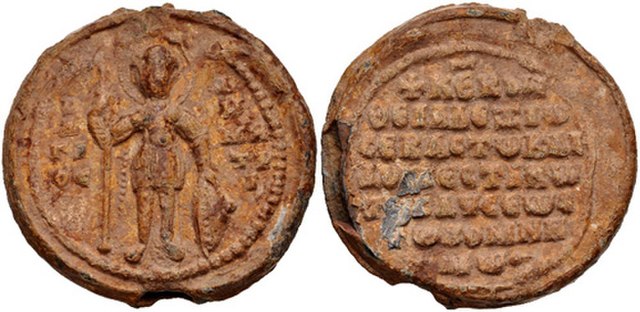The office of the Domestic of the Schools was a senior military post of the Byzantine Empire, extant from the 8th century until at least the early 14th century. Originally simply the commander of the Scholai, the senior of the elite tagmata regiments, the Domestic quickly rose in prominence: by the mid-9th century, its holders essentially occupied the position of commander-in-chief of the Byzantine army, next to the Emperor. The office was eclipsed in the 12th century by that of the Grand Domestic, and in the Palaiologan period, it was reduced to a purely honorary, mid-level court dignity.
Lead seal of Alexios I Komnenos as "Grand Domestic of the West"
The Scholae Palatinae were an elite military imperial guard unit, usually ascribed to the Roman Emperor Constantine the Great as a replacement for the equites singulares Augusti, the cavalry arm of the Praetorian Guard. The Scholae survived in Roman and later Byzantine service until they disappeared from the historical record in the late 11th century, during the reign of Alexios I Komnenos.
Emperor Justinian I and his court, from the Basilica of San Vitale in Ravenna. The soldiers left, with the golden neck-torques typical of Byzantine guardsmen, are scholares.
The insignia of the Western scholae, from the Notitia Dignitatum.
The insignia of the Eastern scholae, from the Notitia Dignitatum.
Palatine insignia on the shields of the soldiers in the Arrest of Christ on the Brescia Casket, late 4th century.





